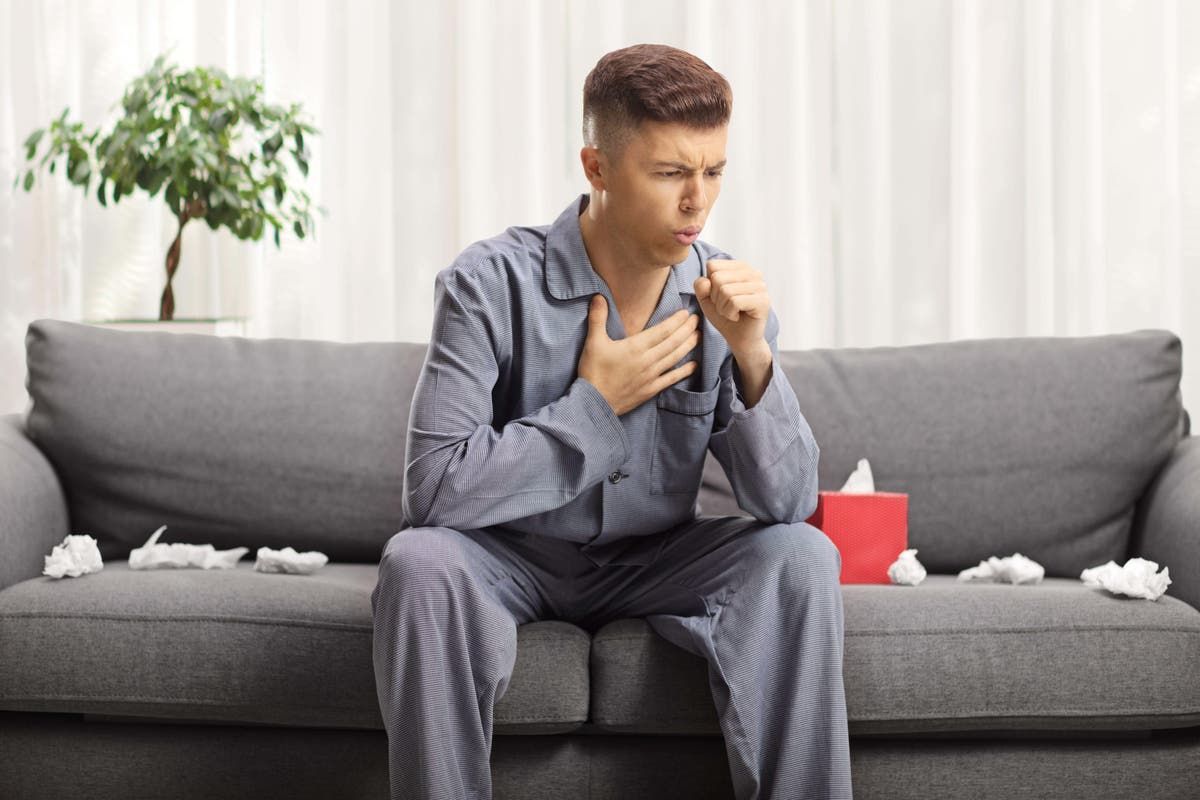Your support helps us tell the story.
In my reporting on women's reproductive rights, I have witnessed the critical role that independent journalism plays in protecting freedoms and informing the public.
Your support allows us to keep these vital issues under the spotlight. Without your help, we would not be able to fight for truth and justice.
Every contribution ensures that we can continue reporting on the stories that impact lives.
Kelly Rissman
US News Reporter
Enjoying the outdoors during the summer holidays can help us feel refreshed and strong, but once September arrives our health tends to decline rapidly.
Nasty coughs and colds often accompany the beginning of autumn and can be really debilitating.
But what are the reasons behind this annual increase in illnesses and what can we do to protect ourselves from germs?
Why do so many people get sick at this time of year?
“At this time of year, many people are returning to close contact settings, such as schools, universities and workplaces, after the summer holidays. This increased interaction with new people, combined with the arrival of colder weather, is contributing to increased infection rates,” says Dr Vikram Murthy, a private and NHS GP and co-founder of Harley Street clinic Murthy Health.
But why are we more likely to feel sick when the weather gets colder?
“The colder months are characterized by drier air, which can weaken the body’s natural defense mechanisms in the nasal passages,” Murthy explains. “In addition, cold weather creates a more favorable environment for bacteria and viruses to thrive, increasing the likelihood of infections. This combination of factors leads to a higher prevalence of coughs and colds during the winter months.”
How do these diseases spread?
Coughs, colds and flu are caused by a variety of viruses and bacteria and are spread through respiratory droplets or by contact with contaminated surfaces.
“You can catch flu by touching a contaminated doorknob, kitchen towel or handrail,” says Dr Roger Henderson, a GP and Olbas expert. “Once your fingers have been contaminated with the virus and you rub your eyes or nose, you spread the virus to areas that are easier entry points. You can also get sick by breathing in droplets containing the disease.”
Common flu usually presents with symptoms such as cough, cold, fever, runny nose, joint pain, headache and general body aches.
“These symptoms can range from mild to severe and often affect overall well-being,” Murthy adds.
What can we do to avoid these germs?
Wash your hands regularly
To reduce the risk of infection, it is important to practice good hand hygiene.
“Hands should be washed for at least 40 seconds, which is about the time it takes to sing Happy Birthday twice,” Murthy advises. “This time ensures that all surfaces of the hands are effectively cleaned.”
Stay hydrated
Drinking plenty of water will help your body stay healthy.
“To prevent germs, stay well hydrated. It helps keep mucous surfaces [the membranes that line the body’s airways, lungs, reproductive, and gastrointestinal tracts]“advises Dr Johannes Uys, a physician at Broadgate GP.
Try vitamin D supplements
“Taking vitamin D regularly not only helps keep your bones healthy, but it can also help boost your immune system,” Henderson says. “Try taking a daily supplement along with vitamin C and zinc.”
Cover your mouth
“Cover your mouth and nose with a tissue or your elbow when coughing or sneezing,” Murthy says.
Feed your body with nutritious foods
“Eat a diet rich in fresh fruits and vegetables and try to keep your alcohol consumption within recommended levels,” Henderson suggests.
Avoid touching your face
“The eyes, nose and mouth are key entry points for viruses,” explains Dr Ashwin Sharma of MedExpress online pharmacy. “If your hands have come into contact with a virus, touching your face can transfer it directly to your body, where it can infect your respiratory tract and cause illness.”
Keep your house clean
“I recommend disinfecting surfaces regularly and changing kitchen towels frequently at home,” says Uys. “It is also good to increase ventilation by opening windows.”
Exercise regularly
“Try to exercise every day,” Henderson says. “It can be something as simple as a long walk outside.”
Avoid sick people
“While it is sometimes unavoidable, if you can stay away from someone you know is sick, this will of course limit your exposure to getting sick,” Sharma advises.
What should we do if we have symptoms?
Over-the-counter treatments, such as acetaminophen and ibuprofen, may help control symptoms.
“Relieve nasal congestion with decongestant oils, sore throats with menthol lozenges, and headaches with acetaminophen or ibuprofen,” Henderson recommends. “If you have a blocked nose, try using a decongestant to relieve these symptoms.”
However, if symptoms do not improve after 10 days, contact your GP.












